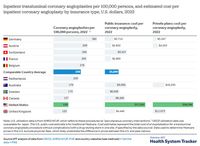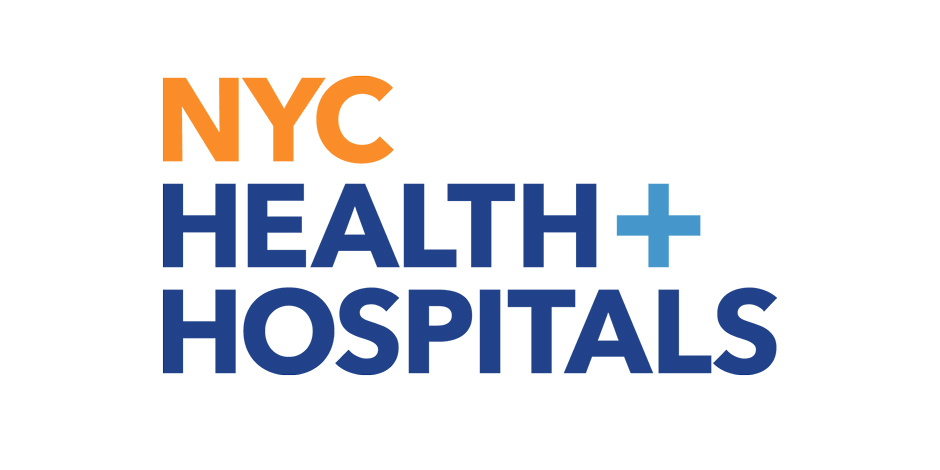Explore web search results related to this domain and discover relevant information.

Prime also plans to acquire Lewiston-based Central Maine Healthcare, entering another new state, by the end of 2025. Central Maine Healthcare is an integrated health system with three hospitals, a cancer center and network of physician practices across the state.
Vincent’s Health System, which includes five hospitals, for $450 million. The deal increased the number of hospitals in UAB Health’s footprint to 17. 15. Irving, Texas-based Christus Health, which comprises more than 60 hospitals, acquired Wadley Regional Medical Center in Texarkana, Texas, in November. 16. Peoria, Ill.-based OSF HealthCare acquired Katherine Shaw Bethea Hospital, an 80-bed facility in Dixon, Ill., in September 2024.Winston-Salem, N.C.-based Novant Health spent $2.4 billion to acquire three hospitals from Dallas-based Tenet Healthcare in February 2024. They include: ... One-third of companies across industries have reduced their planned salary budgets for 2025 due to economic uncertainty, according to a… ... An Ohio system added its sixth hospital and HonorHealth struck a deal to acquire a medical group from Cigna.The for-profit system also acquired Lehigh Acres, Fla.-based Lehigh Regional Medical Center from Prime Healthcare in February.5. New Hyde Park, N.Y.-based Northwell Health and Danbury, Conn.-based Nuvance Health merged into a 28-hospital system in May. The integrated system has more than 1,050 ambulatory care sites, 104,000 employees and annual revenues of about $23 billion. 6. Ontario, Calif.-based Prime Healthcare acquired eight Illinois hospitals from St.
The Definitive Healthcare HospitalView product tracks around 900 active health systems. These systems own or manage over 6,000 hospitals for an average of around six hospitals per health system. More than half of the 10 largest health systems in the U.S. (based on the number of patient discharges) ...
The Definitive Healthcare HospitalView product tracks around 900 active health systems. These systems own or manage over 6,000 hospitals for an average of around six hospitals per health system. More than half of the 10 largest health systems in the U.S. (based on the number of patient discharges) are Catholic-owned or affiliated.The term health system is often used interchangeably with integrated delivery network (IDN). An IDN is a network of facilities and healthcare providers within a specific geographic region that offers a full range of healthcare services, from preventive care and primary care to specialized and complex care.This network typically includes hospitals, clinics, physician groups, and other healthcare entities. Most U.S. IDNs aim to coordinate care across settings and control costs. In this article, we share the top 10 largest health systems in the U.S. based on the number of hospitals, number of staffed beds, and net patient revenue (NPR).The largest health system in the country is HCA Healthcare, with 220 hospitals in its network according to the most recent 12-month interval in our database. Based in Nashville, Tennessee, HCA Healthcare was one of the first health systems in the country when it was established in 1968.


The Hampton VA Healthcare System celebrated National Volunteer Week by honoring volunteers for their service to veterans, with their cumulative time ranging from 47 to 25,193 hours of selfless service.
The Hampton VA Healthcare System celebrated National Volunteer Week by honoring volunteers for their service to veterans, with their cumulative time ranging from 47 to 25,193 hours of selfless serv…HAMPTON, Va. (WAVY) – The Hampton VA Healthcare System took the time to celebrate its volunteers for their devoted service and contributions during this year’s National Volunteer Week.

Healthcare software giant Epic Systems has lost a bid to dismiss part of a lawsuit alleging it unlawfully monopolized the market for U.S. medical records and caused health plans to pay higher costs.
Sept 8 (Reuters) - Healthcare software giant Epic Systems has lost a bid to dismiss part of a lawsuit alleging it unlawfully monopolized the market for U.S.The case is Particle Health Inc v Epic Systems Corp, U.S. District Court for the Southern District of New York, No.Epic runs an electronic repository for U.S. medical records and supplies them to third parties such as healthcare providers and insurers.
The United States (US) has a population of over 330 million people1 and is supported by one of the most complex healthcare systems in the world, formed by intertwining relationships between providers, payers, and patients receiving care.
The US healthcare system does not provide universal coverage and can be defined as a mixed system, where publicly financed government Medicare and Medicaid (discussed here) health coverage coexists with privately financed (private health insurance plans) market coverage.Note that this section is intended to give an overview of how healthcare financing works in the United States. For a more in-depth description of the stakeholders, utilize the hyperlinks to learn more. An overview of the financial flow of the US healthcare system is presented in Figure 1.The US healthcare system is in a constant state of evolution.Figure 1. Financial Flow of the US Healthcare System

Get the best of the Health System Tracker delivered to your inbox. The United States spends more on healthcare than any other large, wealthy country. Total health spending is largely a product of two factors: 1) prices of healthcare services and 2) the volume of services and medications used.
Although systematic data on average costs per doctor visit was not available to compare between countries, several studies that have compared healthcare utilization and spending in varying patient populations in the past have found that the cost per physician visit (for both primary care and specialty care) is higher in the U.S.Although medical coding systems vary between countries, codes for specific services were selected to provide the best comparability between countries and data sources. The table below shows the billing code (e.g., DRG) that was used for each service and country. The Peterson Center on Healthcare and KFF are partnering to monitor how well the U.S.Find out more details about U.S. healthcare from our updated dashboard. Visit the Dashboard · Get the best of the Health System Tracker delivered to your inbox.International comparisons of healthcare systems are complex. Differences in patient populations, healthcare financing systems, and public health infrastructure can make direct comparisons difficult.
Sept 8 (Reuters) - Healthcare software giant Epic Systems has lost a bid to dismiss part of a lawsuit alleging it unlawfully monopolized the market for U.S.
Sept 8 (Reuters) - Healthcare software giant Epic Systems has lost a bid to dismiss part of a lawsuit alleging it unlawfully monopolized the market for U.S.The case is Particle Health Inc v Epic Systems Corp, U.S. District Court for the Southern District of New York, No.Epic runs an electronic repository for U.S. medical records and supplies them to third parties such as healthcare providers and insurers.

Yet most care systems for home-based care continue to rely on periodic, patient-initiated encounters to flag deterioration. Signal-based care, by contrast, positions early detection as the norm rather than the exception. We spoke with Kent Dicks, CEO of Life365, a remote patient monitoring technology and services company based on signal-based care, for a deep dive into how technology can enable this different style of healthcare...
Follow Bill's health IT coverage on LinkedIn: Bill Siwicki Email him: [email protected] Healthcare IT News is a HIMSS Media publication. WATCH NOW: Wisdom on nurses and IT from a health system's nurse CIOThe U.S. healthcare system has long been defined by its reactivity. Care is delivered when symptoms surface, when patients seek care or when conditions escalate to a point of urgency.Healthcare has too often been reactive. But a more forward-thinking approach, using tools and technologies for RPM, can help reduce readmissions, improve patient outcomes and enable success with value-based care models.Today, a growing body of evidence supports the efficacy of a transition from symptom-based interventions to a more proactive, "signal-based" model of care. Here, healthcare does not wait for overt symptoms to materialize.

The National Bureau of Economic Research (NBER) Center of Excellence defines a health system as a group of healthcare organizations (e.g., physician practices, hospitals, skilled nursing facilities) that are jointly owned or managed (foundation models are considered a form of joint management).
The National Bureau of Economic Research (NBER) Center of Excellence defines a health system as a group of healthcare organizations (e.g., physician practices, hospitals, skilled nursing facilities) that are jointly owned or managed (foundation models are considered a form of joint management).Internet Citation: Defining Health Systems. Content last reviewed January 2023. Agency for Healthcare Research and Quality, Rockville, MD.The first step in studying health systems is to develop a definition of what constitutes a "health system," which is expected to evolve over time. Below, each Center of Excellence has contributed its own definition as a starting point, as has AHRQ and the Coordinating Center, which it used to develop the Compendium of U.S. Health Systems, 2016.The Dartmouth College Center of Excellence defines a health system as an organization that consists of either at least one hospital plus at least one group of physicians or more than one group of physicians. For the purposes of this definition, the group of physicians must include at least three primary care physicians.

Looking for the best healthcare visitor management system? See how Visitly, Envoy, and others stack up on features, HIPAA compliance, and pricing in 2025.
Hospitals, clinics, and other healthcare settings need a visitor management system (VMS) that ensures safety, compliance, and efficiency—all while providing an optimal experience for patients, staff, and visitors alike.In the post-COVID era, where hygiene and social distancing have become non-negotiable, healthcare facilities are turning to contactless visitor management solutions, and Data supports it all. · The US holds the largest share of the global VMS market. A whopping 88.28% share within North America in 2023. The days of manual check-ins using paper logs, which are prone to errors and pose safety concerns, are behind us. · Today’s visitor management systems offer automated, real-time solutions that not only streamline visitor tracking but also ensure compliance with privacy regulations, like HIPAA.Envoy – Easy visitor registration, access control integration, and strong healthcare compliance features. Eptura Visitor (Proxyclick) – Flexible workflows, touchless check-ins, and department-level customization. FacilityOS (iLobby) – Built for large hospitals with multi-location support, compliance, and analytics. SwipedOn – Simple, user-friendly solution with contactless check-ins and real-time visitor notifications. Visitly, one of the leading visitor management systems for healthcare facilities, is specifically designed to meet the emerging needs in a post-COVID world.Contactless check-in: In a healthcare setting, minimizing physical contact is crucial for maintaining hygiene and safety. Visitly’s contactless check-in system enables visitors to register via kiosks or mobile apps, thereby reducing the risk of cross-contamination.
In certain countries, the orchestration of health system planning is decentralized, with various stakeholders in the market assuming responsibilities. In contrast, in other regions, a collaborative endeavor exists among governmental entities, labor unions, philanthropic organizations, religious institutions, or other organized bodies, aimed at the meticulous provision of healthcare ...
In certain countries, the orchestration of health system planning is decentralized, with various stakeholders in the market assuming responsibilities. In contrast, in other regions, a collaborative endeavor exists among governmental entities, labor unions, philanthropic organizations, religious institutions, or other organized bodies, aimed at the meticulous provision of healthcare services tailored to the specific needs of their respective populations.Nevertheless, it is noteworthy that the process of healthcare planning is frequently characterized as an evolutionary progression rather than a revolutionary transformation. As with other social institutional structures, health systems are likely to reflect the history, culture and economics of the states in which they evolve.According to the World Health Organization (WHO), the directing and coordinating authority for health within the United Nations system, healthcare systems' goals are good health for the citizens, responsiveness to the expectations of the population, and fair means of funding operations.In most countries, wage costs for healthcare practitioners are estimated to represent between 65% and 80% of renewable health system expenditures. There are three ways to pay medical practitioners: fee for service, capitation, and salary.Sound information plays an increasingly critical role in the delivery of modern health care and efficiency of health systems. Health informatics – the intersection of information science, medicine and healthcare – deals with the resources, devices, and methods required to optimize the acquisition and use of information in health and biomedicine.

Forty health systems made Forbes’ list of the top employers for tech workers. The publication partnered with market research firm Statista to survey over 25,000 U.S. tech workers employed at organizations with at least 1,000 staffers. The respondents evaluated their employers on such factors ...
HCA Healthcare (Nashville, Tenn.) 208. Akron (Ohio) Children’s Hospital · 233. Northwestern Medicine (Chicago) 239. CommonSpirit Health (Chicago) 247. Sanford Health (Sioux Falls, S.D.) 249. Adventist Health (Roseville, Calif.) 255. Intermountain Health (Salt Lake City) 273. Novant Health (Winston-Salem, N.C.) 276. RWJBarnabas Health (West Orange, N.J.) 284. UPMC (Pittsburgh) Recommended Whitepaper · Advertisement · 12 Big Tech health system partnerships ·164. BJC Health System (St. Louis) 166. Prisma Health (Greenville, S.C.) 168. Emory Healthcare (Atlanta) 170. Tenet Healthcare (Dallas) 174. WellSpan Health (York, Pa.) 175. Indiana University Health (Indianapolis) 182. Community Health Systems (Franklin, Tenn.) 184.Forty health systems made Forbes’ list of the top employers for tech workers. The publication partnered with market research firm Statista to survey over 25,000 U.S. tech workers employed at organizations with at least 1,000 staffers. The respondents evaluated their employers on such factors as salary, professional development opportunities, workplace flexibility, the ability to express […]Here are the health systems named to the Sept.
NYC Health + Hospitals is an integrated health care system of hospitals, neighborhood health centers, long-term care, nursing homes, and home care - the public safety net health care system of New York City.
No matter your health care needs, the NYC Health + Hospitals system is there for you.

The Systems Health Care technique is a natural health care approach which recognizes that the human body is a network of highly interconnected components.
The patient or prospective patient Systems Health Care site is here!The Systems Health Care Practitioner Site for Training & Education is here!


Read more: Health systems are looking beyond hospitals for mergers · Get the latest hospital leadership news and strategies with Chief Healthcare Executive, delivering expert insights on policy, innovation, and executive decision-making.
MUSC Health is poised to gain majority ownership of Tidelands Health, and the deal is expected to close in the fall. Tidelands has been facing financial difficulties.The health care system of the Medical University of South Carolina, MUSC Health is moving to acquire majority ownership of Tidelands Health, a nonprofit system which operates four hospitals and more than 70 outpatient clinics.Officials with MUSC Health and Tidelands Health say the transaction will expand services for patients. MUSC holds a 30% stake in Tidelands now, and the two systems have collaborated to provide services for years.Tidelands Health, which just celebrated its 75th anniversary, has endured some financial difficulties in recent years. Officials say the deal will allow Tidelands to remain a “community-led health system” and preserve jobs.
In Japan, the 2023 Next-Generation ... Singapore’s Artificial Intelligence in Healthcare Guidelines seek to codify practices and support the safe growth of AI in health care. In contrast, China’s current regulatory system consists mainly of administrative standa...
In Japan, the 2023 Next-Generation Medical Infrastructure Act facilitates AI use in researching and developing diagnostic tools. Singapore’s Artificial Intelligence in Healthcare Guidelines seek to codify practices and support the safe growth of AI in health care. In contrast, China’s current regulatory system consists mainly of administrative standards.The APAC region faces several barriers to adopting AI in health care, but there are also many opportunities to embrace it. Nations should focus on continued innovation and collaboration to advance digital medical technology and take advantage of everything AI has to offer.Some APAC nations — including Laos, Cambodia, Myanmar, and Timor-Leste — have been slower in adopting AI into their health care systems. This is due in part to limited implementation strategies and regulations.In one study, participants emphasized the need for effective management and local data residency on national servers to ensure security and privacy. Both patients and professionals worry that sensitive information will be misused or compromised when integrated into AI systems.


The administration is working with tech companies to make sharing information with various providers easier. Experts raised concerns about privacy and security.
President Trump on Wednesday announced the development of a health care records system that he said would allow Americans to more easily and broadly share their personal health information with health care providers.Mr. Trump and top federal health officials said the information-sharing program would be an effective replacement for a system that often involves arduous and redundant paperwork that patients fill out when visiting different providers.The administration is working with some of the largest American companies on the record-keeping system, including Google, Amazon, Apple and OpenAI.The system, which aims in part to help Americans with diabetes and obesity, would also include artificial intelligence assistants to help Americans monitor symptoms and navigate health care options.
Systems healthcare is a holistic approach to health premised on systems biology and medicine. The approach integrates data from molecules, cells, organs, the individual, families, communities, and the natural and man-made environment. Both extrinsic ...
Systems healthcare is a holistic approach to health premised on systems biology and medicine. The approach integrates data from molecules, cells, organs, the individual, families, communities, and the natural and man-made environment. Both extrinsic and intrinsic influences constantly challenge the biological networks associated with wellness.Herein, we describe the components of relevant biological systems and the nature of progression from at-risk to manifest disease. We illustrate the systems approach by examining two relevant clinical examples: Alzheimer’s and cardiovascular diseases. The implications of systems healthcare management are examined through the lens of economics, ethics, policy and the law.Human beings are complex biological systems that require coordinated, time-dependent interactions between diverse functional components for optimum survival advantage [1]. Biological systems are also directly influenced by a variety of externalities that act modify the organism’s homeostatic actuators [2]. Likewise, coordinated healthcare efforts are intimately linked to systems science, as they require monitoring of unique metrics and efficient responses to significant variations in order to operate successfully at both the individual and population levels.Systems approaches, therefore, encompass an in-depth understanding of how various components interact over time. In contrast, traditional healthcare has relied on diagnostic and treatment methods that tend to be reductionistic [3]. The patient’s presenting complaint is often analyzed in a problem-focused manner with the goal of elucidating the underlying etiology and/or pathogenic mechanism.

With Epic’s AI portfolio expanding rapidly, health system IT leaders are taking a deliberate approach, carefully evaluating which tools align with organizational priorities, establishing governance frameworks, and planning phased adoption. ... Boston, MA, September 3, 2025: ECG Management Consultants, a leading healthcare ...
With Epic’s AI portfolio expanding rapidly, health system IT leaders are taking a deliberate approach, carefully evaluating which tools align with organizational priorities, establishing governance frameworks, and planning phased adoption. ... Boston, MA, September 3, 2025: ECG Management Consultants, a leading healthcare consulting firm to health systems, physicians, and investors, today announced…West Plains, Mo.-based Ozarks Healthcare will roll out digital preregistration and health forms for patients beginning Sept. 15. The system…Health system leaders are evaluating what new AI tools their organizations should integrate into their Epic EHRs, following several announcements at Epic’s annual User Group Meeting in Verona, Wis. Epic unveiled a range of new features designed to enhance clinical, administrative, and patient experiences.At Tallahassee (Fla.) Memorial HealthCare, Interim CIO Chris Belmont said Epic’s focus on building its own agentic AI tools could help automate repetitive tasks, such as generating letters for insurance denials.

Healthcare facilities implementing AI-powered security systems report significant improvements in patient safety, operational efficiency, and regulatory compliance while addressing critical staffing shortages. artificial intelligence, healthcare operations, patient safety, operational efficiency, ...
Healthcare facilities implementing AI-powered security systems report significant improvements in patient safety, operational efficiency, and regulatory compliance while addressing critical staffing shortages. artificial intelligence, healthcare operations, patient safety, operational efficiency, AI analyticsIt’s in having systems smart enough to understand what they’re seeing and hearing, then alert staff only when human intervention is needed. That’s where AI integrated with open platform video management software is making the biggest difference in healthcare security today.They learn the unique rhythms of healthcare environments and can distinguish between normal operational activities and situation anomalies that may require attention. An emergency department at 3 a.m. operates very differently from the same space during a busy weekday afternoon. Smart systems adapt to and learn these patterns, becoming more accurate over time.The same technology helps with routine compliance monitoring, an area where healthcare facilities face increasing scrutiny. Hospital staff must follow strict protocols for everything from hand hygiene to medication handling. AI analytics can monitor these activities without requiring dedicated personnel to observe every interaction. When protocols aren’t followed properly, the system generates alerts for appropriate follow-up, supporting infection control efforts while freeing clinical staff to focus on patient care.





